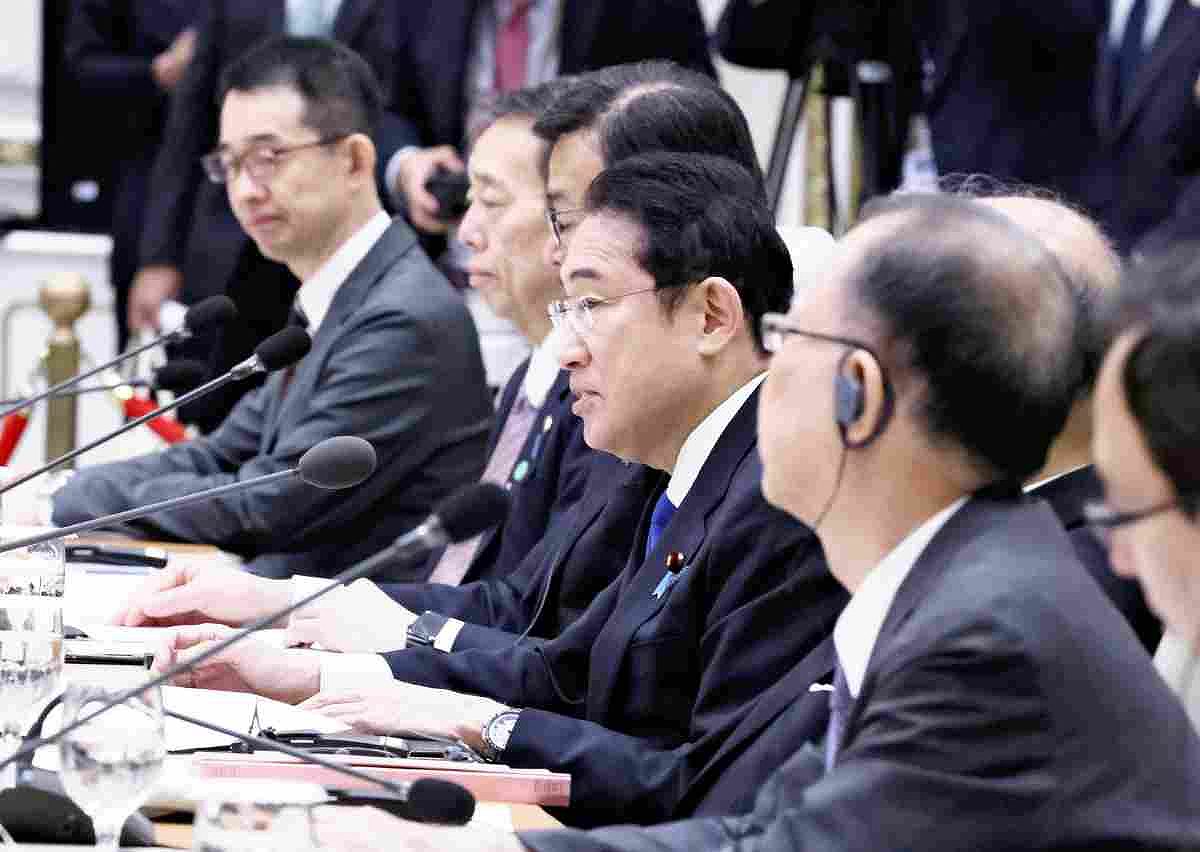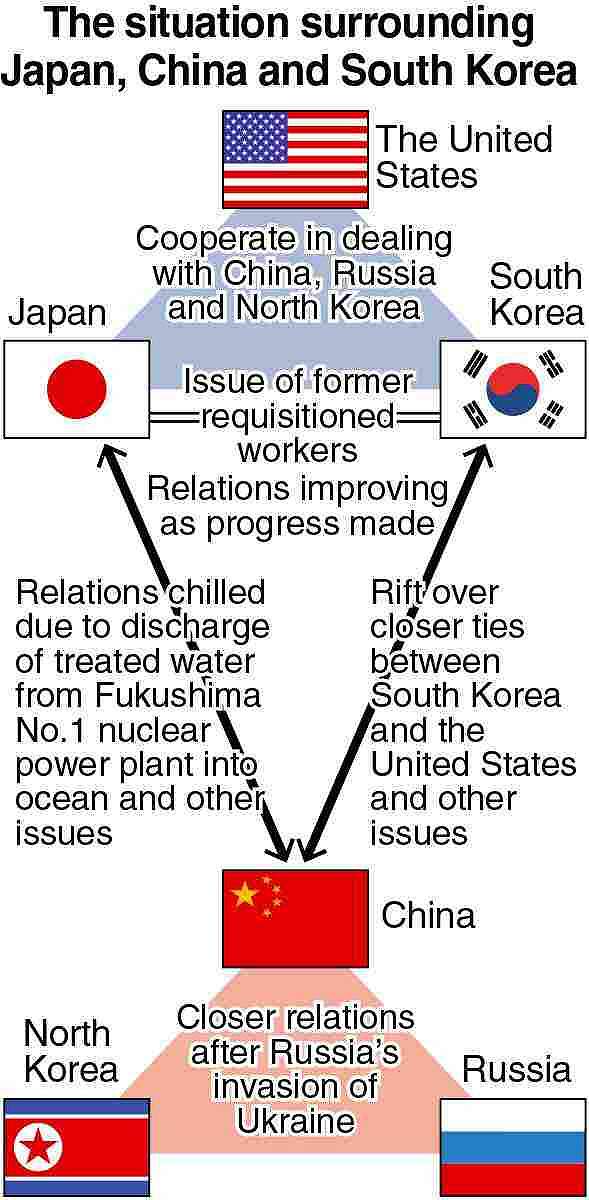Japan-China-ROK Summit Yields Little Agreement; N. Korea, Though Absent, Loomed Over Talks

Prime Minister Fumio Kishida, center, speaks at the trilateral summit between Japan, China and South Korea on Monday in Seoul.
20:00 JST, May 28, 2024
SEOUL — The recent trilateral summit between Japan, China and South Korea illustrated a clear confrontation with China, a country that is increasing its hegemonic behavior, with Japan and South Korea emphasizing the importance of maintaining international order under the rule of law. The starkest difference between the two blocs lay in their response to North Korea.
No mention of N. Korea’s actions
The trilateral summit between Japan, China and South Korea, the first in about four and a half years, was held in Seoul on Monday morning, just after North Korea announced its plans to launch a satellite.
“If Pyongyang goes ahead with the launch, it will be in violation of a U.N. Security Council resolution,” Prime Minister Fumio Kishida said sternly at the beginning of the three-way talks. South Korean President Yoon Suk Yeol also urged the international community to respond decisively. In contrast, Chinese Premier Li Qiang did not mention North Korea’s announcement. From start to finish, his statements seemed to warn against an anti-China alliance, including a call to oppose the creation of alliances in the world.
At a joint press conference after the summit, the leaders of Japan and South Korea both referred to the importance of denuclearizing North Korea. However, Li just said that all parties involved in the Korean Peninsula should maintain self-control to avoid further complicating the situation.
All-night negotiations
The three countries were until the last minute unable to reach an agreement for a joint statement during negotiations about denuclearization.
The draft included wording to the effect that a completely denuclearized Korean Peninsula is each country’s shared goal. South Korea, which hosted the talks, cited the joint statement released after the 2019 trilateral meeting, which also mentioned “complete denuclearization,” when it called for this wording to be included. However, China strongly opposed South Korea’s proposal. The negotiations continued until early Monday morning. Just before the trilateral summit began, the three countries finally reached a compromise by including an emphasis that each country had its own position on the matter.
China reportedly claimed that applying pressure on North Korea through such means as holding joint exercises between U.S. and South Korean militaries and the Japanese Self-Defense Forces exacerbates tensions on the peninsula. A source close to the South Korean government recalling the negotiations said it was like four countries were participating in the negotiations, with North Korea included.
According to diplomatic sources in Beijing, China is also seeking a denuclearized Korean Peninsula, which includes U.S. forces stationed in South Korea, while it apparently avoided acting in concert with Japan and South Korea so as not to irritate North Korea.
Words dropped due to opposition
The draft also originally stated that the three countries oppose any attempt to unilaterally change the status quo by force or coercion anywhere in the world. However, these words were dropped after strong opposition from China, as Japan, the United States and South Korea frequently use the same wording to criticize China’s aggression in the East and South China Seas.

At a joint press conference, Kishida said he was talking about Russia’s invasion of Ukraine when he stated during the summit that any attempt to unilaterally change the status quo is unacceptable.
In the joint statement, the three countries confirmed that they would hold regular trilateral summit and ministerial meetings. The reason for the confirmation was that although they had agreed in 2008 to take turns hosting an annual trilateral summit, the meetings have often been cancelled due to the three countries’ complicated relations.
Japan is scheduled to host the next trilateral summit. “It is important to make it a practice to hold talks between the three countries via a trilateral framework, no matter how bad relations get,” a senior Foreign Ministry official said.
Top Articles in Politics
-

Japan PM Takaichi’s Cabinet Resigns en Masse
-

Sanae Takaichi Elected Prime Minister of Japan; Keeps All Cabinet Appointees from Previous Term
-

Japan’s Govt to Submit Road Map for Growth Strategy in March, PM Takaichi to Announce in Upcoming Policy Speech
-

LDP Wins Historic Landslide Victory
-

LDP Wins Landslide Victory, Secures Single-party Majority; Ruling Coalition with JIP Poised to Secure Over 300 seats (UPDATE 1)
JN ACCESS RANKING
-

Producer Behind Pop Group XG Arrested for Cocaine Possession
-

Japan PM Takaichi’s Cabinet Resigns en Masse
-

Man Infected with Measles Reportedly Dined at Restaurant in Tokyo Station
-

Israeli Ambassador to Japan Speaks about Japan’s Role in the Reconstruction of Gaza
-

Videos Plagiarized, Reposted with False Subtitles Claiming ‘Ryukyu Belongs to China’; Anti-China False Information Also Posted in Japan


























